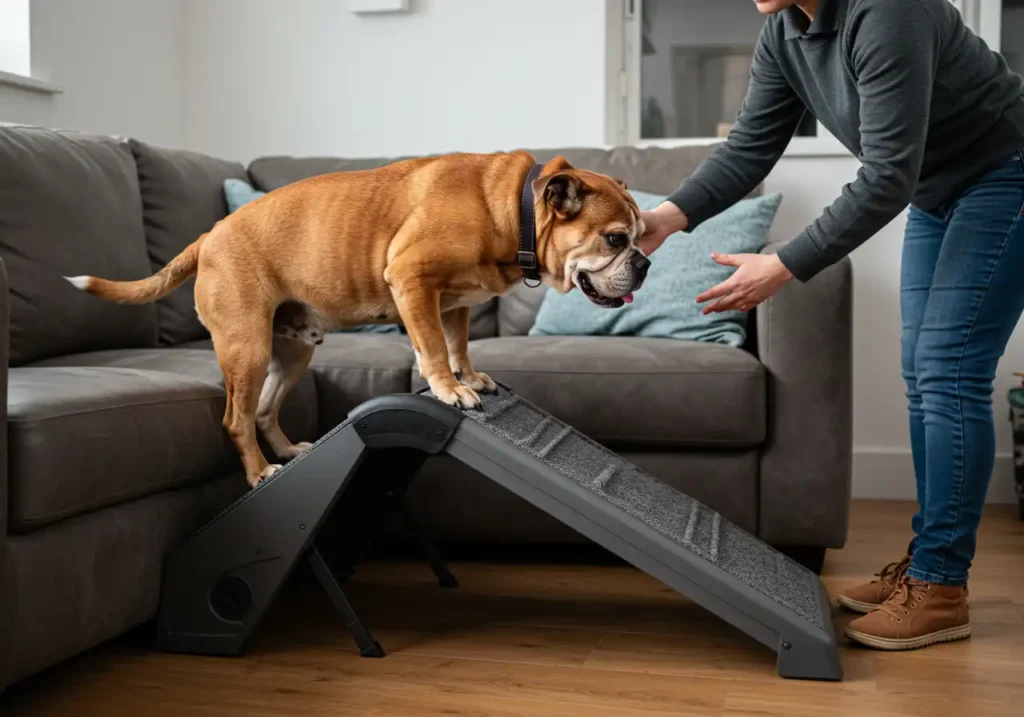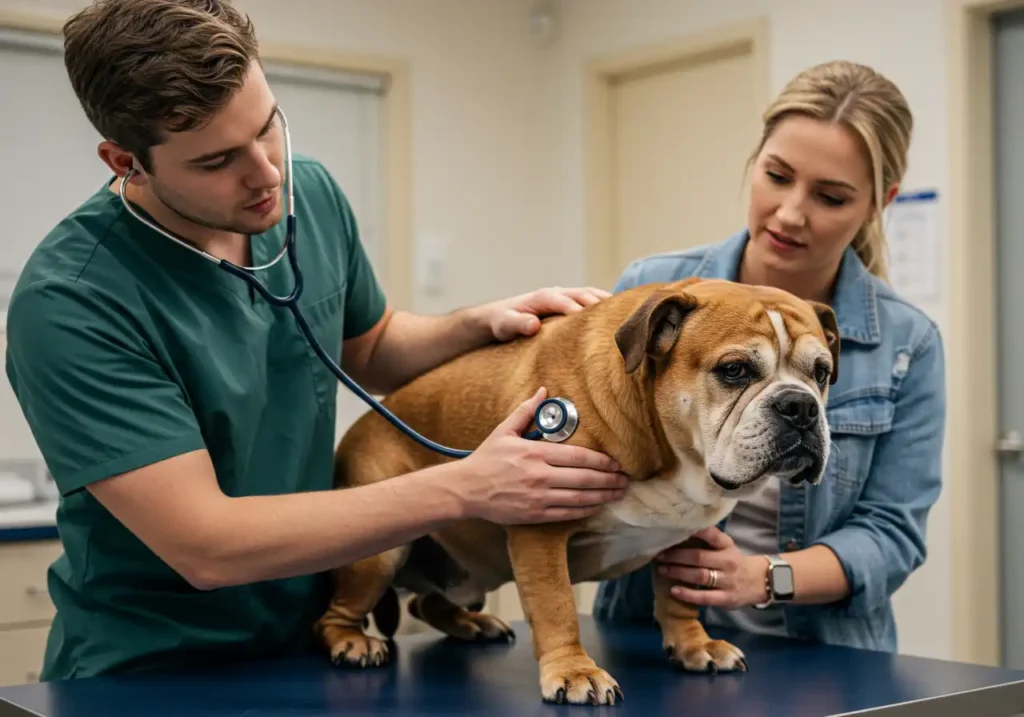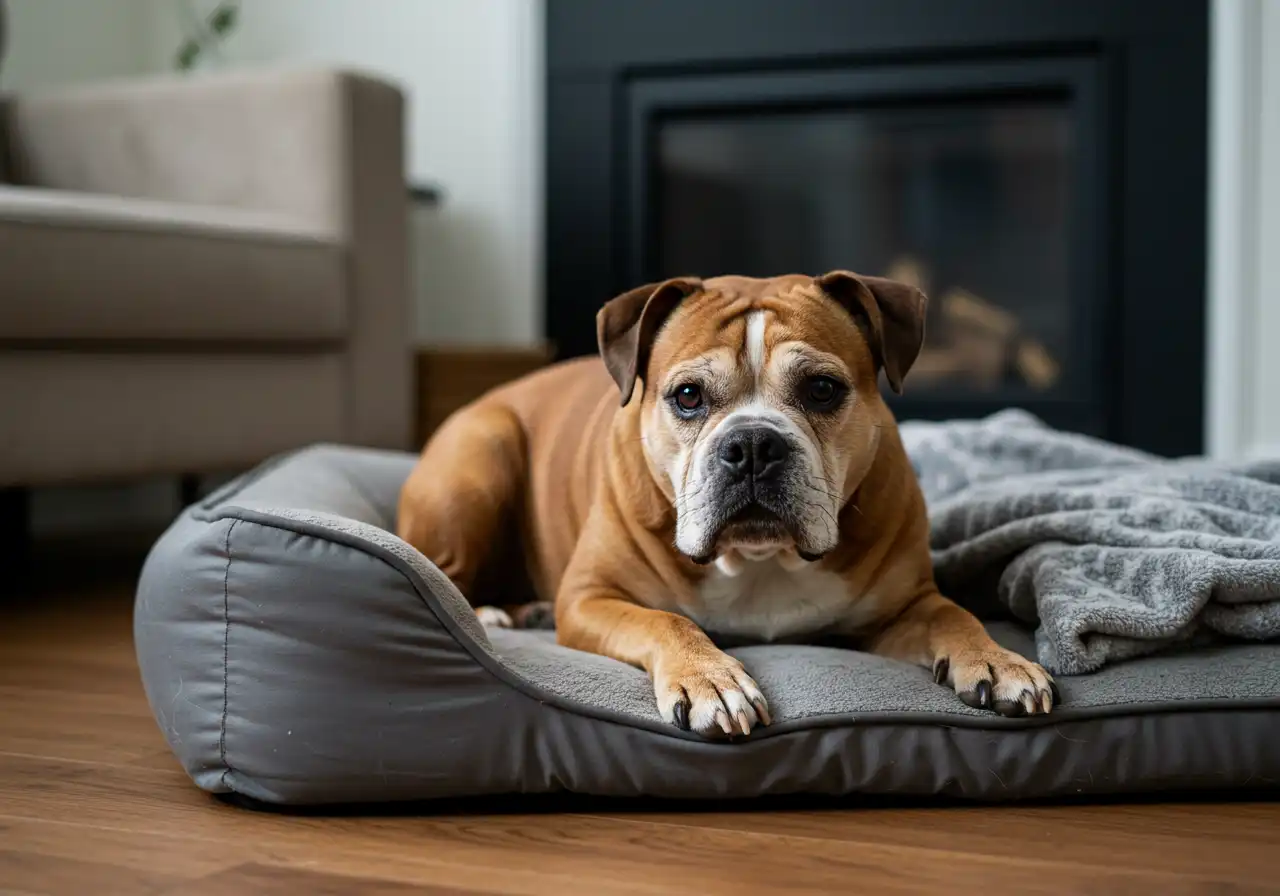As your Continental Bulldog matures, their needs change. While this breed is known for its affectionate and gentle temperament, as they age, it’s important to adjust their care to ensure they continue to lead a healthy and happy life. From dietary changes to exercise adjustments, senior Contis have unique requirements that their younger selves didn’t. This guide covers all the essential aspects of senior care for your Continental Bulldog, helping you support their health and comfort during their golden years.
Why Senior Care for Continental Bulldogs Matters
Like all dogs, Continental Bulldogs experience changes as they grow older. These changes can affect their physical health, mobility, energy levels, and even their behavior. By providing tailored care, you can help mitigate the risks that come with aging, improve their quality of life, and ensure that they live out their years in comfort. Senior Contis typically face health issues such as arthritis, weight gain, dental problems, and more, which require proactive management to ensure they remain active and comfortable.
Signs of Aging in Continental Bulldogs
Just as with humans, every dog ages differently. However, there are common signs of aging in Continental Bulldogs that pet owners should look out for. These signs often start to appear around 7 years of age, although some dogs may show them earlier or later. Identifying these changes early can help you address them promptly.
- Decreased energy levels: Your Continental Bulldog may be less playful or less willing to take long walks.
- Joint stiffness: Senior Contis are prone to joint problems, which may make them less agile or reluctant to move around.
- Changes in eating habits: Appetite fluctuations or changes in preferences can be signs of aging or health issues.
- Weight gain: As dogs age, their metabolism slows down, leading to potential weight gain.
- Vision or hearing loss: If your Conti seems disoriented or less responsive to sounds, they may be experiencing sensory decline.
- Dental problems: Gum disease and dental decay are common in older dogs and can affect overall health.
If you notice any of these signs, it’s important to consult your vet to rule out any underlying health problems and determine the best approach for care.

Diet and Nutrition for Senior Continental Bulldogs
As your Continental Bulldog gets older, their nutritional needs change. You may need to adjust their diet to address weight control, joint health, and overall energy levels. It’s essential to choose a senior-specific dog food formula designed to support aging dogs.
Choosing the Right Senior Dog Food
Senior dog foods are formulated with fewer calories and higher fiber content to help your aging dog maintain a healthy weight. Look for food that includes ingredients that promote joint health, such as glucosamine and chondroitin, as well as antioxidants that help with cognitive function. The goal is to provide balanced nutrition while preventing obesity, which can exacerbate joint issues.
Managing Weight and Portion Control
Weight management becomes increasingly important as your dog ages. Older dogs are often less active, which can lead to weight gain. Overweight dogs are at higher risk of developing joint issues, diabetes, and heart problems. Be mindful of portion sizes and adjust your dog’s food based on their activity level and weight.
Hydration
Senior dogs can be prone to dehydration, which can affect their kidneys and other organs. Make sure your Continental Bulldog always has access to fresh water, and monitor their drinking habits. If you notice any significant changes in their water intake, it’s important to consult with your vet.
Exercise and Mobility for Senior Contis
Exercise is just as important for senior dogs as it is for younger ones, but the type and intensity of exercise will need to be adjusted. Regular exercise helps maintain muscle mass, joint flexibility, and overall health, but it’s crucial to tailor activities to your dog’s physical condition.
Low-Impact Activities
For senior Continental Bulldogs, low-impact activities such as short walks or gentle play are ideal. Avoid high-impact exercises that may strain their joints, like running on hard surfaces or jumping. Swimming is an excellent option for senior dogs because it provides a full-body workout with minimal stress on the joints.
Joint Health and Arthritis Care
Arthritis is a common issue for senior dogs, especially for breeds like the Continental Bulldog that are prone to joint problems. Look for supplements that support joint health, such as glucosamine and fish oil. Consult your vet to determine the best arthritis management plan, which may include pain medication or physical therapy.
Stretching and Mobility Exercises
Gentle stretching can help maintain your dog’s mobility and flexibility. Regularly assist your Conti with gentle leg stretches or massages, focusing on areas like the hips and shoulders where arthritis is common. Always be gentle and avoid any movements that cause pain or discomfort.

Comfort and Sleeping Arrangements for Aging Contis
Senior dogs often require more comfort, especially when it comes to their sleeping arrangements. Your Continental Bulldog may have difficulty getting up from hard surfaces or may seek warmer, softer places to rest. Consider providing orthopedic dog beds that support their joints and pressure points.
Creating a Comfortable Sleeping Space
Make sure your dog has a comfortable, quiet place to rest that is easily accessible. If your Conti has difficulty climbing stairs, consider using ramps to help them get onto beds or sofas. Avoid letting your dog sleep on hard floors for extended periods, as it can exacerbate joint pain.
Temperature Considerations
Older dogs are more sensitive to temperature extremes. Ensure that their sleeping area is warm enough during colder months but not too hot in the summer. You might want to use cooling mats or heated beds depending on the season and your dog’s preferences.
Regular Veterinary Check-ups
Routine vet visits become even more critical as your Continental Bulldog ages. Regular check-ups help catch health issues early, such as heart disease, kidney problems, or cancer. Your vet may recommend more frequent visits (every 6 months) to monitor your dog’s health and make necessary adjustments to their care routine.
Senior Dog Screenings
Ask your vet to perform screenings for common senior dog health issues, such as blood tests for liver and kidney function, heart exams, and X-rays for joint problems. These screenings help identify potential issues before they become serious and allow for proactive treatment.

End-of-Life Considerations for Senior Contis
As difficult as it may be to think about, it’s important to be prepared for your dog’s end-of-life care. Senior dogs may experience a decline in quality of life, and in some cases, euthanasia may be the kindest option. Discuss your dog’s health and quality of life with your vet to determine when it might be time to make such a decision. It’s important to prioritize their comfort and well-being above all else.
Conclusion
Caring for an aging Continental Bulldog requires thoughtful adjustments to their routine, diet, and lifestyle. By focusing on their health, comfort, and well-being, you can ensure your senior Conti continues to live a happy and fulfilling life in their later years. Regular vet visits, joint support, a nutritious diet, and appropriate exercise will help keep your Conti healthy and active. Remember, with the right care, your Continental Bulldog can enjoy their senior years with you for as long as possible.

